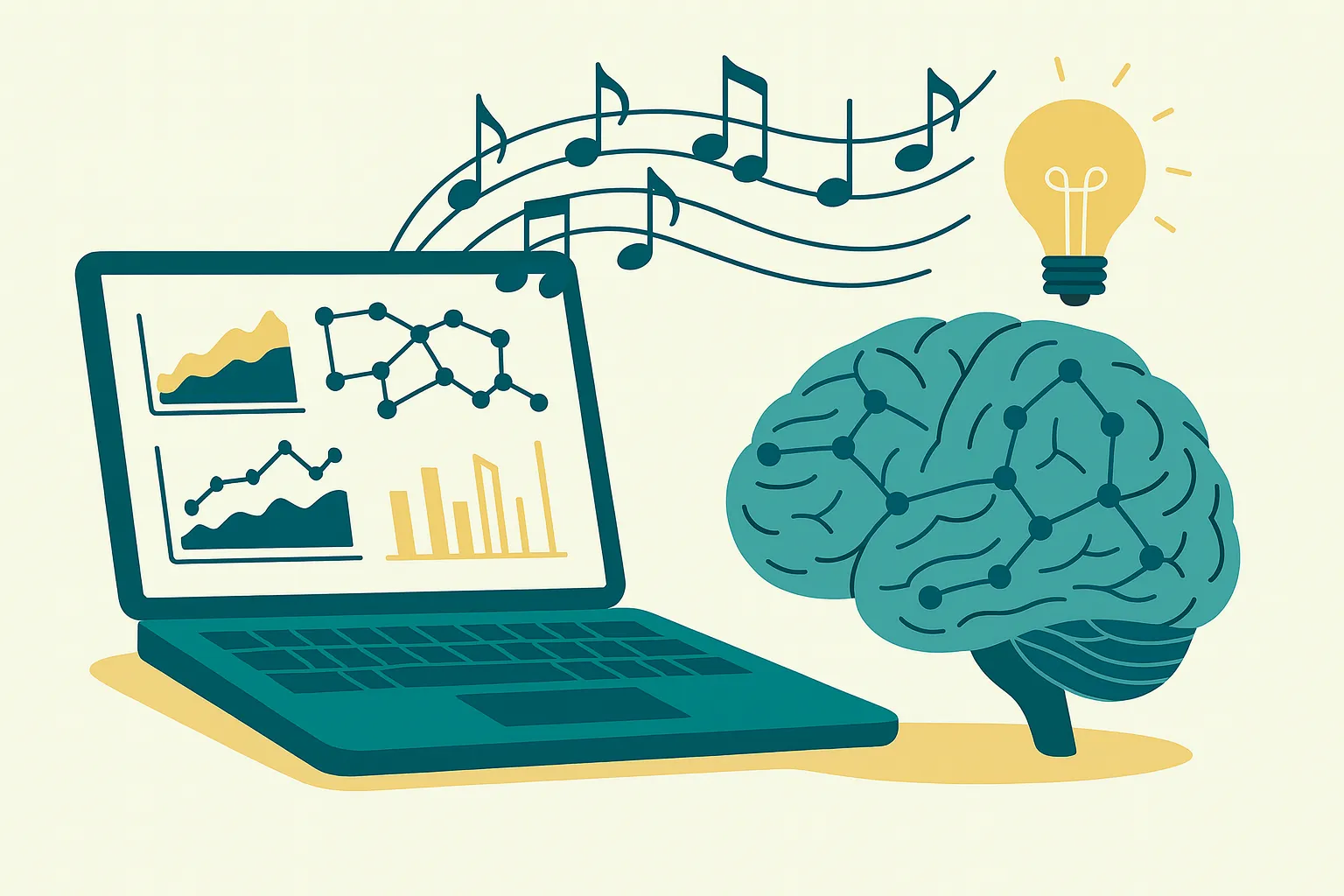Minds, Machines, and Meaning

- Access the workshop recordings by clicking here: Workshop Recordings
- Date: Wednesday, 5 November, 2025 1:30pm- 4:45pm
- Place: Rosensäle of the Friedrich Schiller University Jena, Fürstengraben 27, 07743 Jena
This interdisciplinary workshop explored how inference connects the human mind, computational models, and creative expression. Through talks spanning active and causal inference, large-scale brain data, and algorithmic music generation, we examined how psychological theory, data science, and artificial intelligence can inform one another. This workshop brought together diverse perspectives to deepen our understanding of how meaning and intelligence emerge through interaction.
Workshop Schedule
13:30 – 13:35
Welcome
Speaker: Joachim Giesen
Affiliation: Friedrich Schiller University Jena
13:35 – 14:20
From Active Inference to Causal Inference?
Speaker: Wanja Wiese
Affiliation: Ruhr University Bochum
Abstract: In this talk, I will first review core tenets of active inference, a modelling approach developed by theoretical neuroscientist Karl Friston and colleagues. I will then critically examine the extent to which an active inference agent engages in causal inference. To do this, I will first outline how causal inference, as per Judea Pearl’s framework, differs from mere probabilistic inference. Finally, I will argue that, contrary to initial appearances, active inference agents may perform interventional, but not counterfactual, causal inference.
14:20 – 14:45
Coffee Break
14:45 – 15:30
From Big Brain Data to Collaboration: Where Mental Health Meets Computer Science
Speaker: Thomas Wolfers
Affiliation: Friedrich Schiller University Jena
Abstract: This talk explores how large-scale brain and behavioural data can deepen our understanding of the human mind. We will examine the challenges inherent in such data, ranging from domain shifts and noise to label uncertainty, and discuss how advances in computer science, particularly in machine learning, can help address them. The session aims to spark dialogue on how mental health research and computational sciences can join forces to build robust, interpretable, and clinically meaningful models. I look forward to connecting and exchanging ideas on how we can truly join our brains for collaborative innovation.
15:30 – 16:15
Multidimensional Musical Markov Chains
Speaker: Douglas Cunningham
Affiliation: Brandenburg Technical University Cottbus
Abstract: In this talk, we examine several extensions to Markov Chains for music learning and generation. This approach allows us to maintain algorithmic transparency and computational efficiency while pushing the boundaries of what these methods can achieve. Traditional Markov chain approaches to music generation face two key limitations: they struggle to handle multiple musical parameters simultaneously, and higher-order chains become exponentially memory-intensive. Here, we explore the promise of decomposing the problem into multiple first-order matrices and then combining their predictions, as well as the efficacy of using discounted higher-order chains both within and between the musical parameters. This approach dramatically reduces memory requirements while potentially capturing more sophisticated musical relationships through the interaction between different parameter matrices.
